News and Awards
- Awards and Achievements
- In Memorium
- Alumni News
- In the News

The Department of Communication remembers Anita Schiller, who died of COVID on January 23 at 94. Anita was a librarian at UCSD, a fierce defender of the public right to information and a fighter for women’s equality in the library profession.
She was the wife of Herbert I. Schiller, one of the founding faculty members of our department, and was a loved and active member of the department community. Anita and Herb shared the 1982 Golden PEN award for magazine writing for their article in The Nation, “The Privatization of Information: Who Can Own What America Knows,” and Anita was named an honorary member of the American Library Association in 2007. Kelly Gates and Ellen Seiter share their memories of Anita Schiller.
I met Anita Schiller in 2013, when I was organizing a panel on the legacy of Herbert Schiller and the UCSD Department of Communication for the department's 30th anniversary celebration. The panelists were DeeDee Halleck, Angharad Valdivia, and Michael R. Real, who also recently passed away.
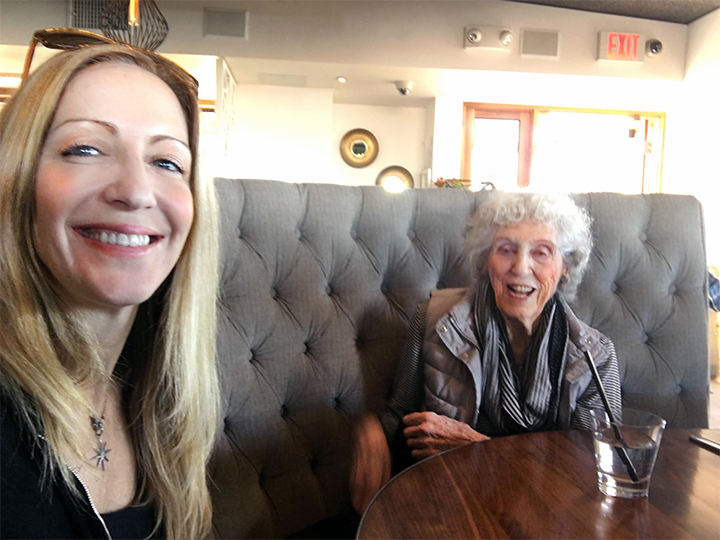
I remember how thrilled Anita was when I called to invite her, and when we met in person we became fast friends. Our next meeting was as dates to Prof. Mike Cole's retirement dinner, and over the eight years since then we enjoyed many lunches in La Jolla together (and the occasional fancy dinner at Nine Ten in the Grande Colonial Hotel). We were looking forward to the re-opening of the café at the San Diego Art Museum, one of Anita's favorite restaurants. I'm sad I won't have the chance to go there again with her, where the waiters knew her and bent over backwards, no matter how busy it was, to make sure she was comfortable and got the best table.
I remember a story she told me on one of our first outings, about running into two people while on a walk in her beautiful neighborhood of Windansea. She was sure it was Mitt Romney and his wife, although she hadn't realized it until after giving them a warm hello. "Oh well," she said, "there's nothing wrong with being polite." (It was soon after the Obama-Romney presidential race.)
As others have recalled, what I remember most about Anita's political and intellectual commitments was her deep concern about the commodification of public information, and especially the fate of public libraries. She reflected often about how excited she initially had been for the prospects for computerization, given its potential to expand access to public information and improve information systems of libraries. It was when she was invited to see a demonstration by a company selling a computerized card catalog system that it became clear to her that digitizing libraries was being envisioned as an avenue for privatization.
Anita was always so eager to hear what I was working on, and what exciting research of others I would recommend. On a few occasions I shared with her drafts of work in progress. She would read the work immediately to give me feedback, which was always encouraging and supportive. What I will miss most are the great conversations, her warmth and humor, and, despite what she called all her "this and thats" (the effects of aging), her kindness and tireless commitment to social justice.
Rest in Power, Anita.
When I think about Anita, I hear her voice. So expressive, so deep and husky. I hear Anita’s laugh, too. She seemed always to be in good spirits. Despite the losses and trials of aging, Anita was a delightful conversationalist, a thoughtful and enthusiastic host well into her 90s. As a mother and grandmother, she imparted her deep political commitments to her two sons and three grandchildren.
Anita was brilliant and cosmopolitan, gracious and charming. Her knowledge on all topics was formidable -- intimidating, even. Her intellectual curiosity was colossal. Whatever topic we wandered into while visiting, Anita knew so much it made me wished our visit could last a week with her instead of an afternoon. Whenever I met her, she had remembered what I was working on at the time and had clipped something very useful for me.
Professor Emeritus Steve Erie, (UC San Diego Department of Political Science) recalls working with Anita in the 80s on his first book:
“I first met her at the UCSD library in the early 1980s shortly after I joined the faculty. She made researching my first book an adventure. Her sleuthing skills were second to none, tracking down arcane sources and even locating the perfect cover photo. There was a lightheartedness and joyfulness about her that I will never forget. Thinking about Anita Schiller brings a big smile to my face. She was an insouciant breath of fresh air, with a wonderful, slightly goofy smile and a spring in her sandal-clad step.”
Professor Emeritus Steve Erie
As an acclaimed university librarian, she predicted the problems digitization and privatization of information would bring. As Jim Jacobs, Data Librarian at UCSD 1985-2006, recounts:
“Anita was my colleague, friend, and mentor. From her day-to-day work as a reference librarian and bibliographer, to her research on pay equity, to her insights into the effects of new technologies, she was a constant inspiration. She was one of the first to recognize the importance of computers to libraries, but she also understood how they could increase commodification of information, reduce privacy, and interfere with free access. She was instrumental in getting data into the UCSD library in the early 1980s before most librarians were aware of the existence of "machine readable data files." She was serious about the role of libraries in the information ecosystem, but she had a great sense of humor. She was charming and loving and I miss her every day.”
Jim Jacobs, Data Librarian at UCSD 1985-2006
Another of her colleagues described Anita this way:
“Anita was much more than a library mentor…. we didn’t meet until long after she had retired from UCSD. She remained highly engaged with library issues long after she retired, which is a tribute to her passion for libraries and all that they represent in the world.”
Writing with her husband Herbert Schiller in The Nation in 1982, she presciently warned against the assault on public access to information:
With almost no public notice, the national stock of information, created through heavy public expenditures over the years, is steadily being removed from government custodianship and transferred to private ownership and control. Actively promoting the privatizing of information on -% behalf of the new and already influential corporate information sector is the Information Industry Association. Founded in 1968, the Washington-based I.I.A. numbers among its more than 150 members some of the most powerful information companies in the country, including I.B.M., Time Inc. and divisions of The New York Times Company and the Chase Manhattan-Bank. On its board of directors are representatives from McGraw-Hill, Dow Jones, Lockheed, Xerox, Mead Data Central and The Washington Post Company. The I.I.A., whose members produce, package, transmit and disseminate information, claims that its primary goal is “to promote the development of private enterprise in the field of information and to gain recognition for information as a commercial product.” Commonplace and benign as that may appear, it represents the reversal of a national commitment to the ideal of public knowledgeability and the informed citizen. “Information as a commercial product” is information that is produced for profit. Who can pay for it and how much it will cost become questions that affect everyone.
Anita Schiller, for all her warmth and kindness, was also fierce in championing the rights of women librarians for equal pay. In 1970, she published an essay “The Disadvantaged Majority” in the American Library Association journal. Two critical letters, by Laurent-G. Denis and Kenneth Plate, took exception to her argument. In her withering response she wrote:
The way these gentlemen view it, there apparently is no need for change, because women's presently unequal status is totally justifiable. Their argument is that women are accorded status commensurate with their inferior qualifications, and that settles the matter. If women today earn lower salaries than men and are under-represented in top level positions, these facts cannot be justified or dismissed with the statement, “This we know.” If we know it, we can do something about it.
Even if one accepts the proposition that women librarians are professionally underqualified compared to the men, the central issue then is: why are women less likely than men to acquire advanced degrees, etc., and what can be done to overcome the obstacles to women’s professional attainment?
If Messrs. Plate and Denis believe that we must await comprehensive research findings of discrimination before we affirm a commitment to equal opportunity, I disagree; for the needed documentation will never be gathered until we challenge the traditional outlook toward women in the profession, and develop programs of action, as well as research, to overcome the present social obstacles to equality.
I consider it a tremendous privilege to have known Anita Schiller. My only regret is that I was not able to spend more time in her company. ~ Ellen Seiter
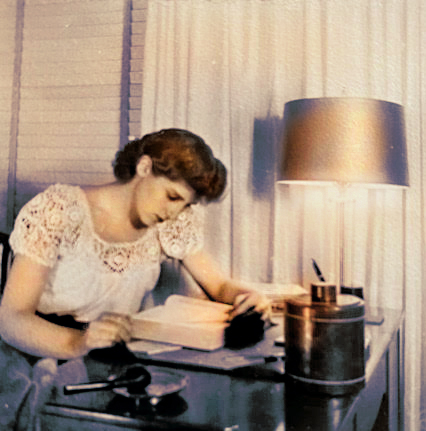
Our condolences to the Schiller family, her friends, and colleagues worldwide. You can read the San Diego Union Tribune about Anita Schiller's life and work at this link: https://www.sandiegouniontribune.com/obituaries/story/2021-02-04/covid-victim-anita-schiller-wsa-pi
Our dear colleague and friend Gayatri Singh passed away on October 31st, 2019. As the Geisel Library liaison to the Department of Communication, she worked closely with many of our faculty and our graduate and undergraduate students. She was beloved for her kindness, expertise, and friendship which she shared generously with countless colleagues here at UC San Diego. Her absence will be deeply felt and her impact on our lives will be cherished. We share our thoughts and memories in a collective farewell to Gayatri.
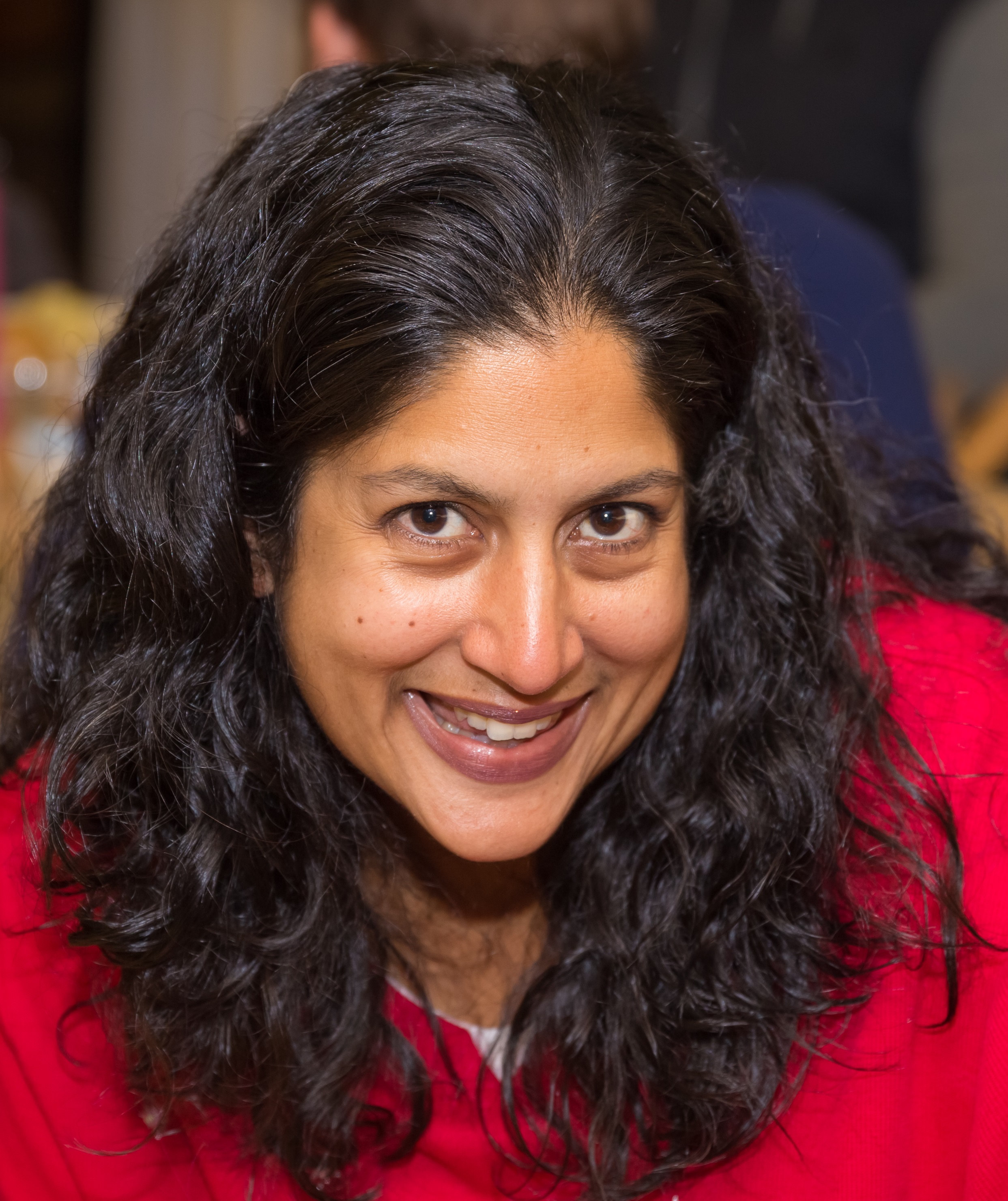
Gayatri Singh was born on July 13, 1977, in San Diego, California, to Ramanand and Nirmala Singh. Gayatri’s arrival completed our family of five, and she was the youngest in our extended paternal family. Gayatri was beloved by all—young and old, children and pets alike. Her affinity for books was second only to her love of cooking and baking. Gayatri received a BA in History with a minor in Women’s Studies from UC Irvine in 1999 before going on to earn her Masters in Library Science from the University of North Carolina, Chapel Hill, in 2002.
When Gayatri returned to her friends and family in Southern California, she worked at several libraries before finding a permanent home at UC San Diego in 2007, where she became the Reference Coordinator and library liaison for the Department of Communication and South Asian Studies.
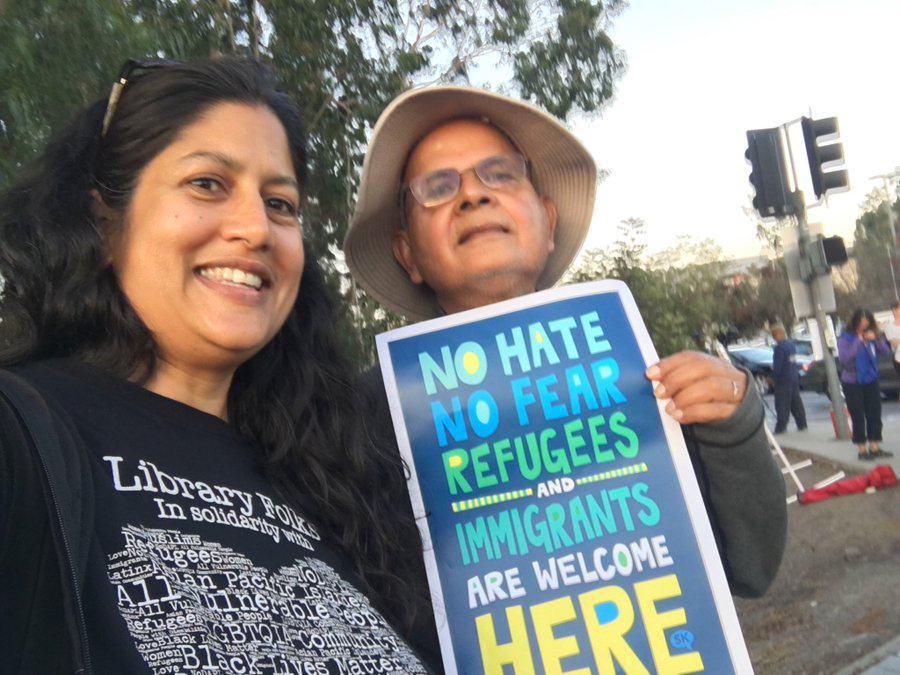
Everywhere she worked, Gayatri was a cherished colleague, mentor, and friend. As a community builder extraordinaire, she quietly led others with her compassion, kindness, and unwavering dedication to the people and causes she cared about. Her impact stretched far beyond UCSD to statewide and national organizations.
Gayatri is survived by her mother, Nirmala; her father, Ramanand; her elder sister, Radhika; middle sister, Meera; brother-in-law, Madhukar; and her nephews, Viraj and Varun; and her nieces, Riya and Shreya, along with an extensive extended family. As the baby of the family who stayed close to home, she has always had a special place in her parents’ hearts.
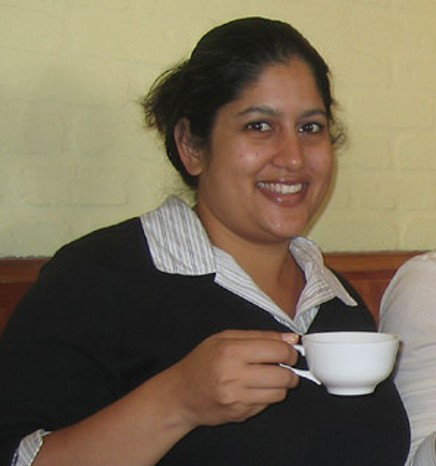
Gayatri Singh was one of the most generous and openhearted people I have ever known, and so much of my ability to function as a scholar and teacher at UCSD depended on the assurance of having her as my ally. If I encountered friction in my attempts to use the library, Gayatri was the one I called. When the intricacies of the library’s myriad online databases stumped my students, I sent them to Gayatri, and she was the one I trusted with my own insecurities about all things digital in doing my research. This fall, as I brought together colleagues around UCSD to honor Toni Morrison’s legacy, Gayatri was one of the first people I turned to. I knew that if she was involved we would have a successful series of events and sure enough she took on a host of organizational tasks, from raising funds, reserving a room and securing exhibition cases, to arranging for parking and refreshments. Tragically, she did not make it to the panel discussion she organized but its success stands as a tribute to her. I mourn her passing, but I will always be thankful for all the gifts she gave me, of dependability, friendship and, every now and then, a simple cup of tea.
Boatema Boateng
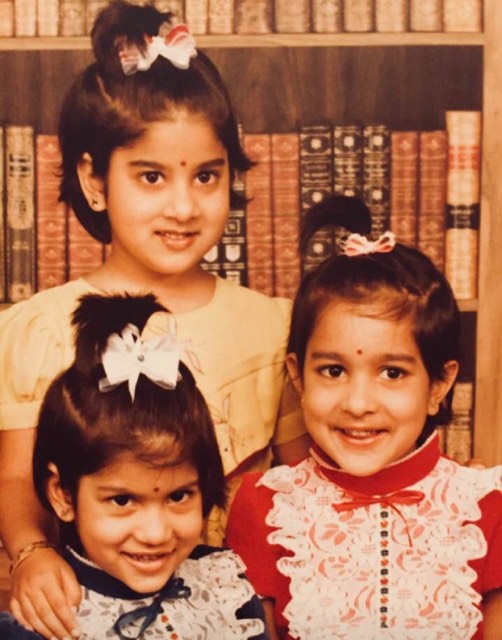
When I was little, Gayatri and her sisters Radhika and Meera would let me tag along at church events where we grew up together. Though we were not related by blood, we were like cousins. Purely coincidental, my Sankrit name and features made some assume I was the fourth sister. I remember playing badminton in her parent’s backyard, drinking chai, and dressing up for her sister’s wedding.
Decades later when I started my Ph.D. in the Department of Communication I was happily surprised to see this familiar name amongst the list of speakers at my orientation. I was welcomed to this department with a warm hug and giggles from my dear friend after years of separation. Every time she came to speak or help in our department in some way, it felt like an inside joke, a secret history we shared that she used to be my “babysitter.” In a world where “imposter syndrome” is the rule rather than the exception, I felt like there was someone who really knew me…we saw each other as colleagues within a longer, deeper history as extended family. It meant that there would always be precious moments of absolute comfort and ease within the often chaotic, anxiety-ridden, and scary journey through graduate school. She saw me and I saw her. Just weeks before her death, we met over coffee to talk about how to better support our faculty and graduate students in captioning their media and we ended up on a detour in the digital media lab, playing with scanners and nerding out over the 3-D printers that Geisel Library now offers. She was always down to nerd out; to play with new technology or use pop culture examples for her presentations on how to use library resources. Each year they were different: Harry Potter, zombie, Cardi-B... Gayatri was a human being.
It might seem nonsensical to say that, but in the tense and pressurized world of academia where many of us, especially women, genderqueer people, and people of color, have to constantly navigate intersecting layers of treacherous barriers and worrisome pitfalls, Gayatri was safe. She was a safe place. She was light, joyful, kind, and real. I feel like we academics often receive accolades and the cultural cachet of our research and expertise without the recognition that our successes are always team effort, that we only stand as high as the shoulders that support us. I feel like people forget about librarians especially now that many seem to think that the printed book is 'obsolete' (which could not be further from the truth) and our precious libraries are being squeezed dry due to budget cuts and the systematic devaluing of their place in a democratic society. She was a daily reminder to me that librarians like Gayatri are central, absolutely vital to our communities. Each of our successes is co-authored by her and her colleagues at Geisel Library.
When I first heard of her passing, it was such a pure sense of tragedy that this wonderful person, in a world rife with despair and vitriol, was taken from us, taken from me. I felt a sense that the world was a little less safe, a little less beautiful. She was one of the good ones. I kept hearing Mister Rogers, speaking gently to both us 80s kids watching our remote-less TVs on our brown shag carpets with our scrunchies and our My Little Ponies. I kept hearing that quote about helpers. “When I was a boy and I would see scary things in the news, my mother would say to me, ‘Look for the helpers. You will always find people who are helping.” ~ Mr. Rogers. There will always be bad people doing bad things, but Gayatri was one of the helpers. She showed up. She spoke up. She did the thing. Sometimes this world feels desolate of kindness, but I’m going to hold on to the Gayatri inside of me that pushes aside the cynicism and instead shows up to help. It’s all we can do. It’s the very best we can do, and she modeled that for me. And for that I will never say farewell because to say goodbye to the helpers inside us is to give up hope and surrender to our worst tendencies. Remembering Gayatri gives me strength and so, to my dear friend, I say only “au revoir.”
~Nalini Asha Biggs
Gayatri was the heart and soul of the UC San Diego Library. No matter what she was doing, she created community, inspiring us all to be better — kinder, calmer, more compassionate and joyful — as individuals and as an organization. Gayatri was extraordinary in all of her roles at the library, and she had many of them. She was the reference coordinator who would find just what a user needed. When online questions came in the middle of the night, she was there. She taught classes, cared deeply about the student experience, and was at the core of our outreach activities. For many of us, it was her face that greeted us at the information or reference desk, always with a smile.
Gayatri was extremely active in the Library community, playing ongoing leadership roles our Library’s committees for Diversity and Inclusion and for Sustainability as well as a number of local initiatives around both. She was also highly engaged at the statewide and national levels, holding multiple positions throughout organizations including the Librarians Association of the University of California; the California Academic and Research Libraries Association and the Southern California Instruction Librarians interest group; the Asian Pacific American Librarians Association; and the Reference and User Services Association.
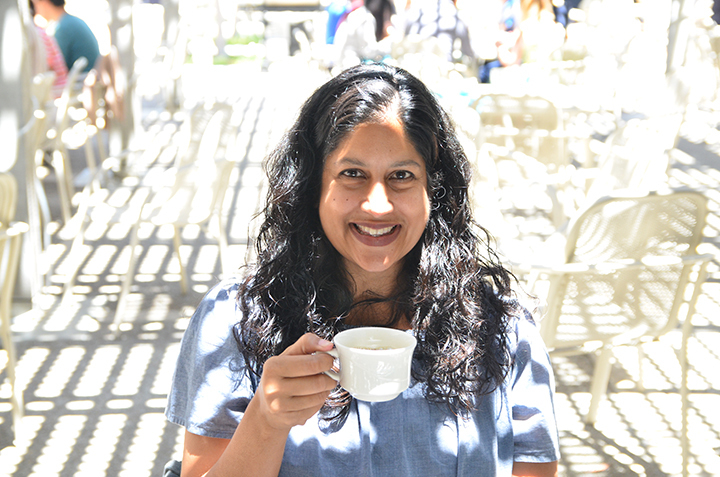
Gayatri had hands that made things happen. She was the worker bee who quietly took on every task, large and small, never calling attention to how much she was doing. As if by magic and with a wave of her sparkly nails, tables of food appeared at events, an exhibit would go up, a panel would be organized, or a sign would appear that made everyone think and often laugh. She would deny it, but among us worker bees, she was the queen. She led by example, gently pushing for what she believed in with strength and determination.
It would be impossible to list all her contributions and accomplishments in the library world. A consummate collaborator, she drew together people who shared her passions’ to organize many educational and social events centered around social justice, environmental sustainability and dismantling systems of oppression. She transformed the way the library celebrated black history month, creating cross-campus connections that resulted in remarkable events, enriching exhibits, and lasting friendships. Makers day during earth month and several of her events have become annual traditions at the UC San Diego Library. We look forward to the DiversiTea cultural potluck and the Holiday Cookie Exchange. It’s no accident that many of the staff events involve food.
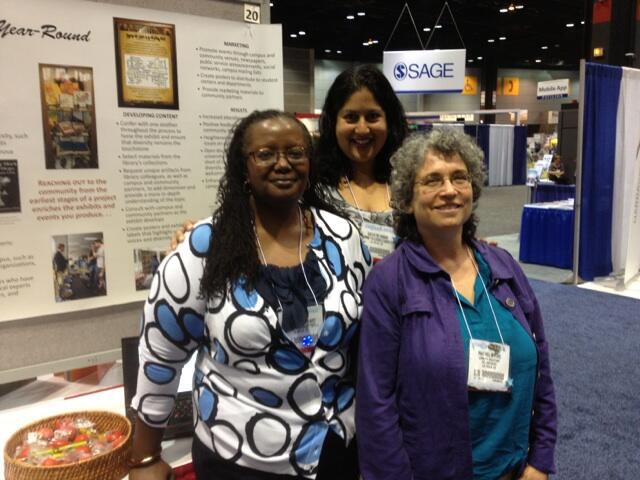
She made sure we were all well nourished with knowledge, but also with cupcakes. Her overflowing candy bowl often brought us together. She brought in citrus and vegetables from her parent’s garden; she shared her mother’s amazing cooking (and especially her chutney), and she baked fantastic treats that brightened the day.
As our amiga Maria said:
“Because of her, there is more color in the library.”
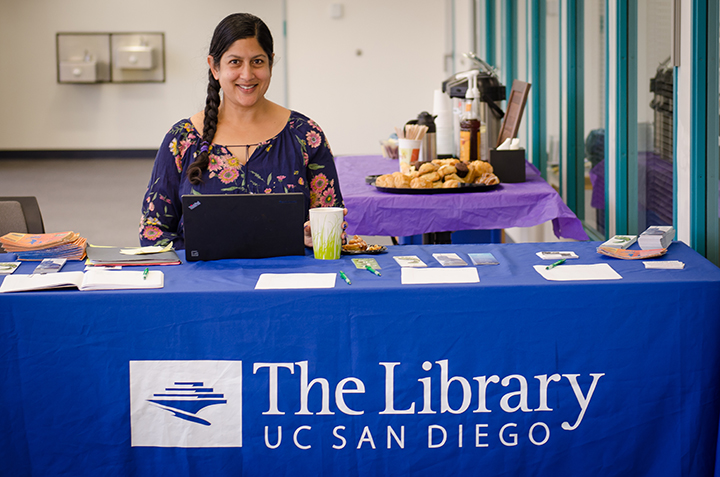
This is so true: she made the Library more vibrant for everyone and far more inclusive for people of color. She devoted herself to improving our workplace, taking on the issues of recruitment and retention and incorporating cultural competencies into our work. As the longest-standing member of the Diversity Committee, she had a major impact including the creation of a permanent group dedicated to building community among the library staff and the establishment of an annual fund for library staff to travel to diversity and inclusion conferences. When asked to mentor in a summer fellowship program for library graduate students from traditionally underrepresented groups that provided students an opportunity to work in an academic library, Gayatri participated in the program every year it was held at our Library. Mentoring was natural to Gayatri. And she kept up her relationships with the fellows, always remembering to take a group selfie whenever they saw each other again.
Gayatri’s strength was in creating connections within the library, the campus, the wider community, and nationwide. She cared about her work and the people she worked with. She made the Library a better place to be, and she made our work more valuable to campus and beyond.
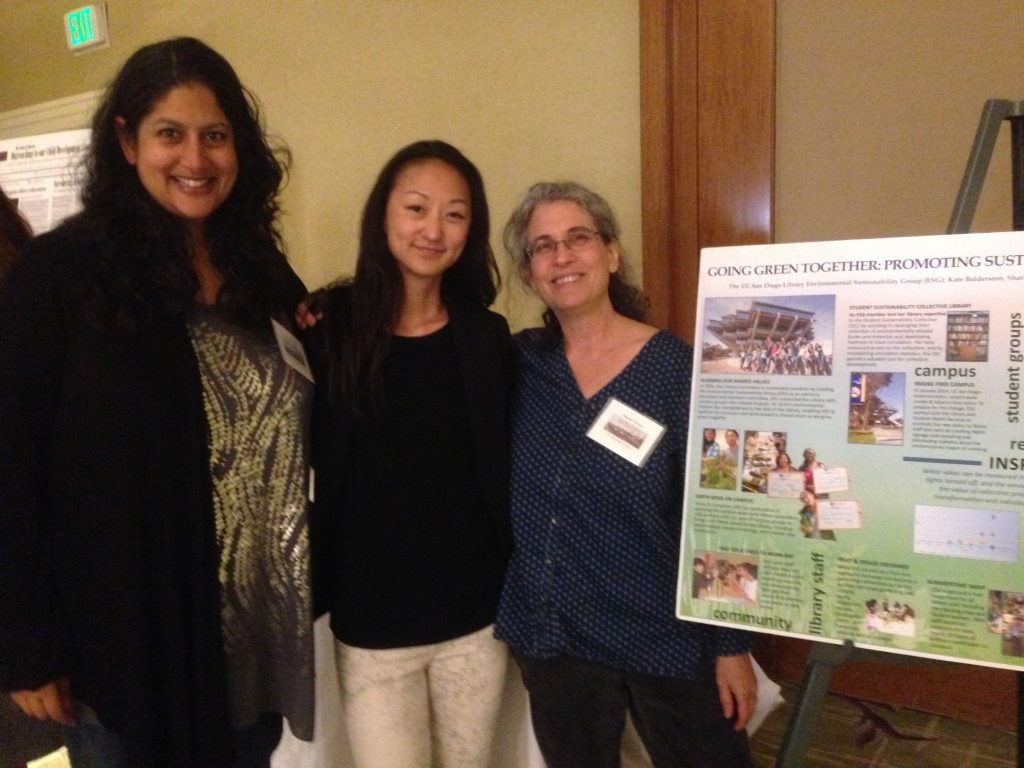
For friends, she was the person who had the “lets do it!” attitude. We could count on her to explore a new place, try out a restaurant, watch a movie, attend a lecture or a protest, and it usually meant her driving the distance to be with us. For those of us who are car-less, it also meant she thought about how we would get there and back. It is her thoughtful and considerate day-to-day actions that are a source of inspiration.
At an event last week that she helped organize celebrating the life of Toni Morrison, there was a quote from the book Song of Solomon used to describe Toni Morrison’s life, but we think it aptly summaries Gayatri’s as well. It is simply,
“And she was loved.”
Gayatri Singh, librarian extraordinaire, was the consummate mentor, collaborator, partner in crime, friend and inspiration. As a staff member at the library, I’ve served with Gayatri on a number of committees, from outreach to diversity to sustainability. She never saw hierarchies; she saw people. If there was work to be done, she quietly did it. Where credit could be shared, she shared generously, celebrating her colleagues and collaborators—always.
Most of what we did together wasn’t exactly in my job description, but Gayatri included me because she cared, she knew I did, and she knew what I was capable of even when I wasn’t quite so sure. She brought joy, fun, and meaning to what we did inside work and out. And, as I’ve learned, I’m not the only one she mentored . . . more than mentored--empowered.
Gayatri and I got to know one another well when I was on the outreach committee of what was then the Social Science and Humanities Library. As soon as she joined that committee, magic happened. Our team collaborated on projects that linked the library, UCSD’s many departments and groups, and the wider community—from African American quilting to coffee to pirates (which absolutely demanded an unscheduled “field trip” to the Star of India), and monsters (I was firmly in the slayer camp swearing undying allegiance to Buffy; Gayatri preferred her vampires to match her nail polish--sparkly).
She and Dorthea Stewart and I forged a close connection and did work that mattered, often with others, creating exhibits and events that were timely and necessary. Gayatri had an unwavering commitment to social justice as does Dorthea. We addressed topics such as civil rights, voting rights, and #blacklivesmatter, and we worked year-round on projects that promoted community and inclusion. All along, Gayatri was there drawing us together, making things happen and creating space for others to make things happen, too.
Gayatri took me places I'd never expected to go—literally. (She’d announce on a regular basis that we’d be presenting our work in a poster session at a conference; then she’d fill out the paperwork and ask me to sign on the dotted line.) At those conferences, I met her friends and collaborators from other libraries. Wherever she went, she brought together communities, facilitated meaningful work, and forged lasting connections. And she always made time for play (which for Dorthea and me generally included high tea).
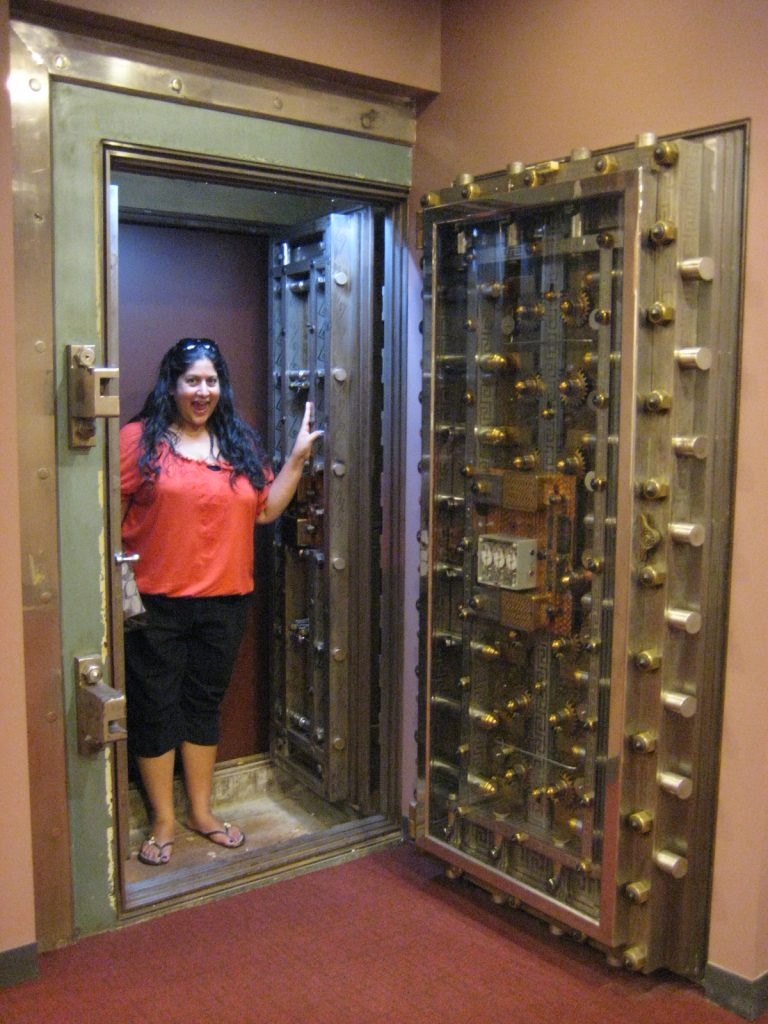
Over the years we’ve known each other, Gayatri has changed me for the better, cajoling me to begin and finish work, shoring up my confidence with her own belief in me, and always finding opportunities to do the work we cared about together. Her influence will live on in thoughts and small actions that have become part of me because she was. And I know I’m not alone. But I also know that there is an ache and absence in this very real, very physical world. Love and grief intertwined…
~Monika Sengul-Jones
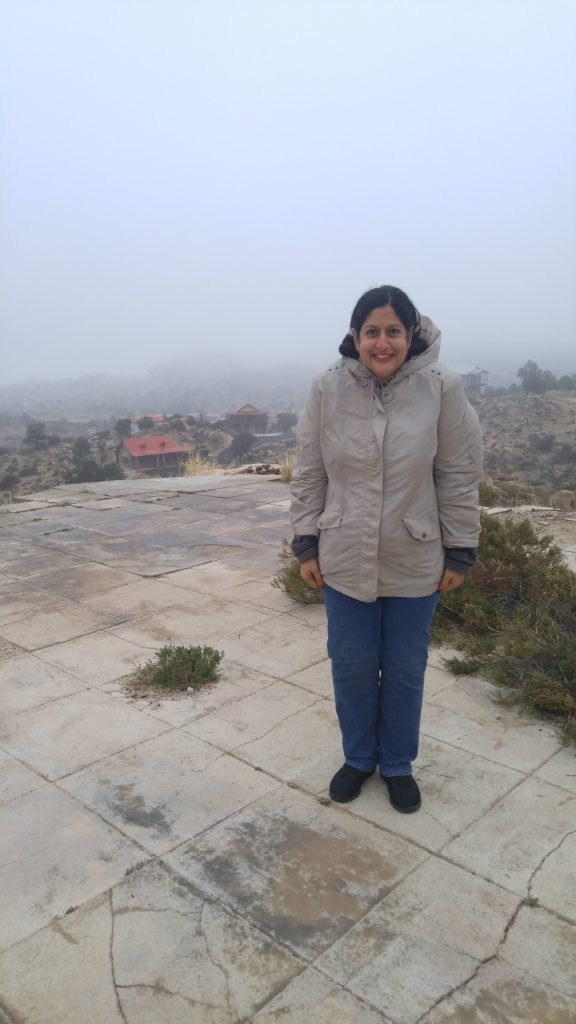
Gayatri was always a kind and giving research partner. She was a pivotal resource for me while writing my dissertation, when doing postdoctoral research for the CA Historical Society, and within my teaching practice. Just weeks before we lost her, Gayatri helped to lead a workshop and field trip for my History, Memory, and Popular Culture course. As we were examining the notion of an archive in the class, Gayatri and fellow librarian Cristela Garcia-Spitz led an interactive workshop on "Searching History and Memory in Digital Collections," and took the students on a field trip to the library's digitization room. In the above photo the students watch with awe as an archivist shows the inner workings of a cassette tape. Gayatri can be seen watching in enjoyment. The students absolutely loved the experience, many staying after class was officially dismissed (such as during this photo). Some also seemed intrigued by the field of library and archival studies and Gayatri shared her educational background and encouraged interested students to consider a future in the library sciences. The Monday after the field trip the students all shared how much they learned from the experience and how much they genuinely enjoyed it. I saw Gayatri the week after this field trip at Zeinabu Davis' campus screening of her film Compensation as Gayatri was also leading efforts from the library in sponsoring the event. I hugged her and told her how much the students enjoyed the field trip. Gayatri greeted this news with her customary kindness and humility. Days later I shared the news of Gayatri's passing with my class. Saddened and shocked, we decided together to dedicate the rest of the course to Gayatri's memory.

The following are excerpts of a weekly reflection from COMM 145 students regarding their field trip
"The third field trip, but second field note took place at the heart of UCSD’s campus, UCSD’s Geisel Library. The excursion upheld topics examined during class while raising through emphasis the week’s theme: memory. UCSD’s digital collection was the main event of the outing, with archival manifestation, transferation, and preservation having moments of the spotlight. The opening of our archival conversation began with the types of sources (primary and secondary), archives and memory came soon after, as new models and emerging concepts closed the curtains. The history and memory of archives conflates to diary a moment, to an object, to a representation, therefore, synchronizing itself to be a part of history. During the presentation that the two librarians so kindly provided the class with, my mind wandered to the readings read relating to memory, the talks spoken, and how might my mind be impacted by from entering presentation to exiting."
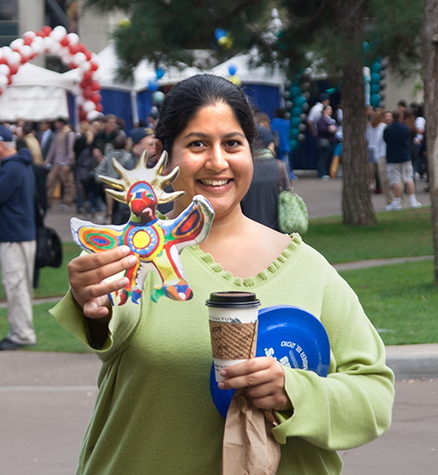
One of my favorite things about Gayatri is that she remembered us as individual people, in addition to her work with us as a department. Early on, she learned quickly that I *love* getting swag, especially library/stationary swag. And so she would always bring extra little bits — highlighters, post-it-notes, journals, pens, stickers — to make sure there was enough for me, even when she was presenting to our incoming grad students. She always took pleasure in seeing my childlike glee when she’d bring out that bundle of pens and (my favorite) post-its.
But there’s an even better story that demonstrates her careful work to support our research. A few years ago, I was writing a little piece for which I needed a TINY column from an obscure newspaper published in Nevada in the 1920s. I kept finding references to two sentences buried in this column, but the column itself was impossible to find/access using existing library databases. So I wrote her about it. She responded immediately to say that she was sitting at the airport, headed to an ALA conference, and that she’d see what she could do but I might not hear from her for a week. I’d mentioned that I was giving this particular talk the following week; but of course I understood, so I just began planning not to have the exact lines for the talk. No big deal. But I received another email from her a few hours later — she had found and accessed the column while she was on the plane, and sent it to me as soon as she landed (and had strong wifi service). It was nothing short of a miracle, from my perspective — but was absolutely the kind of thing she always did for us.
I’ve never forgotten these things. And I’ve always looked forward to seeing her, joking around with her, when we’re in the same place at the same time. She was a force of brilliance, of compassion and light, and I miss her dearly.
~Patrick Anderson
Gayatri was a warm, open person. Generous and sincere in spirit -which is rare- and genuinely interested and engaged in our work. She was willing to go the extra mile to ensure our access to important materials and to other personnel who can support us in our scholarly journeys.
~Kim Clark
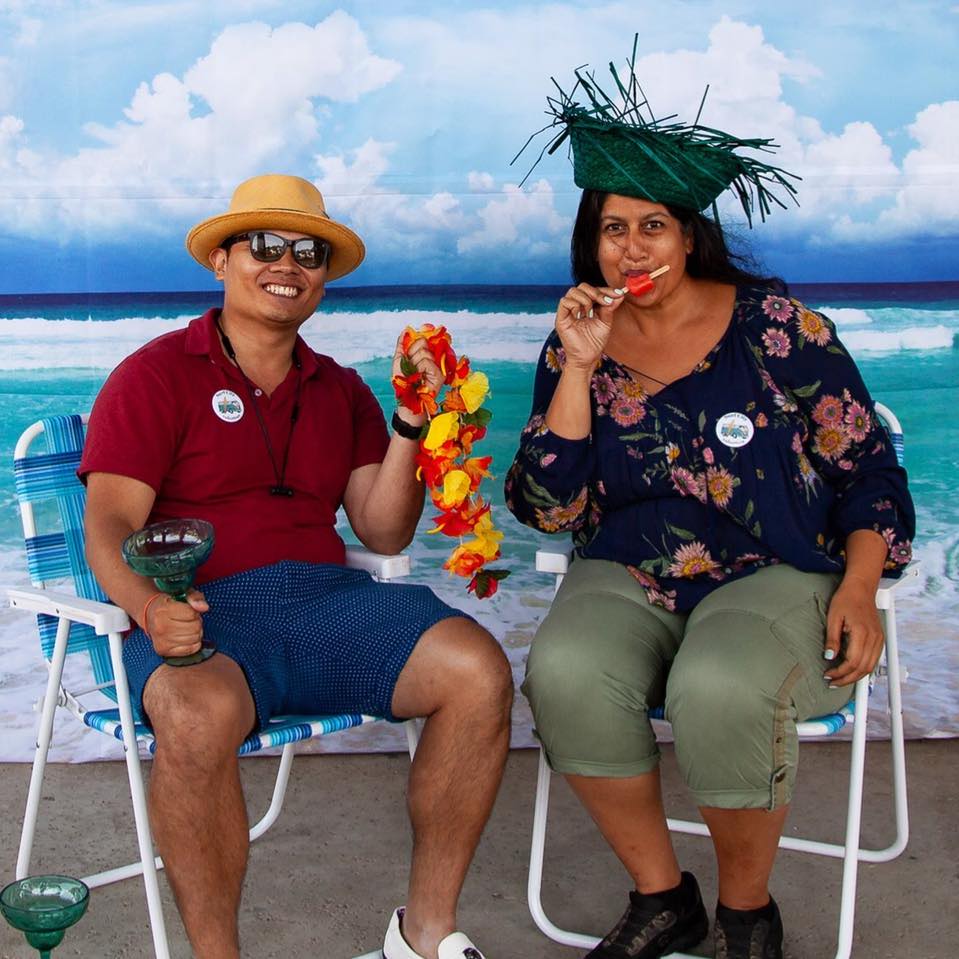
Gayatri was my manager for our department (Research Advisory Services). Gayatri was one of my biggest supporters; especially when it came to library community building. No matter how busy Gayatri was she always found the time to help me out with a smile.
~George Tion
Gayatri impressed me as someone I wanted to be friends with from the moment I met her when I started at the UCSD Library a little over two years ago. Although she had this warm and generous spirit, you understood that she had concentric circles of friends, close friends and even closer friends developed over time. At her memorial, I talked with other folks who echoed my experience, people who didn’t know her as well as others in attendance but were feeling the loss of a deeper connection missed. Over these past years, I had a few interactions with Gayatri that exemplified her kindness, generosity of spirit, and her valuing people regardless of who they were. Every October, libraries celebrate Open Access Week and it has been my job to organize events and activities at my home campus. In 2018, we held an event to register folks on campus with researcher identifiers, called ORCiD.
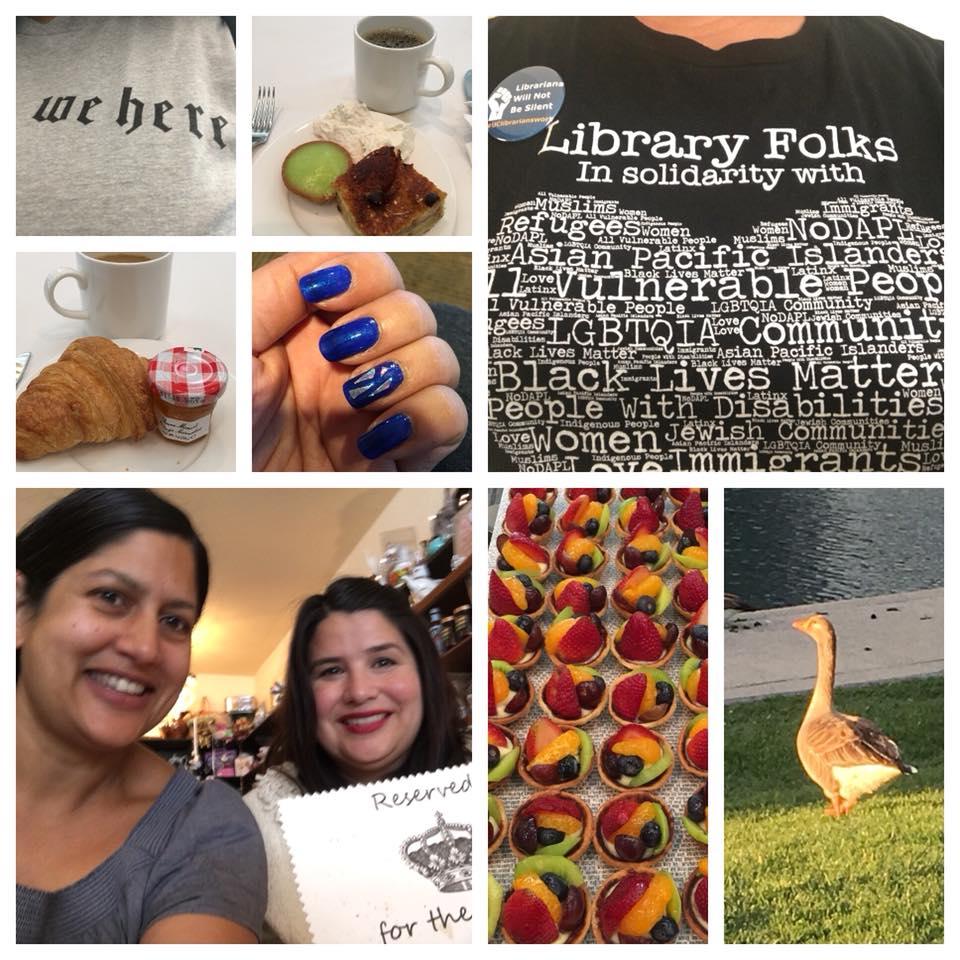
Gayatri volunteered at one of our tables and did what no one else was able to do, she signed up about 30 students in a couple of hours. At first I was concerned because ORCiD are intended for Researchers and this designation sometimes includes graduate students but rarely, if ever, undergraduates. I asked Gayatri what her successful pitch was and how she was able to draw these students in and she said, “I’m asking anyone who walks by if they do research, are they a researcher, and the students are self-identifying as researchers so I help them sign up.” This made sense to me. Gayatri always jumped in and leant a hand, but in a way that aligned with her world view and ethos. Of course you would include students as researchers and officially register them with an ORCiD if this is how they identified. This was Gayatri. She drew you in and you felt seen and validated no matter if you just met
her or were lucky enough to have made it into the circle of close friends.
~Allegra Swift
The memorial service for our outstanding and much beloved librarian, Gayatri Singh, was a truly beautiful ceremony. I did not know Gayatri outside UCSD, which I deeply regret. But I learned from her family and friends that her generosity, kindness, infectious energy and "can do" attitude, which characterized her working relations, extended into every aspect of her life. We each left the ceremony with the gift of Prasad (which I learned was Hindi for the consecrated food offering shared with congregants after the ceremony). Like Gayatri, and the service in her memory, the offering provided much needed sustenance and a lingering sweetness. I will miss Gayatri all the more for not having known her as a personal friend.
Elana Zilberg
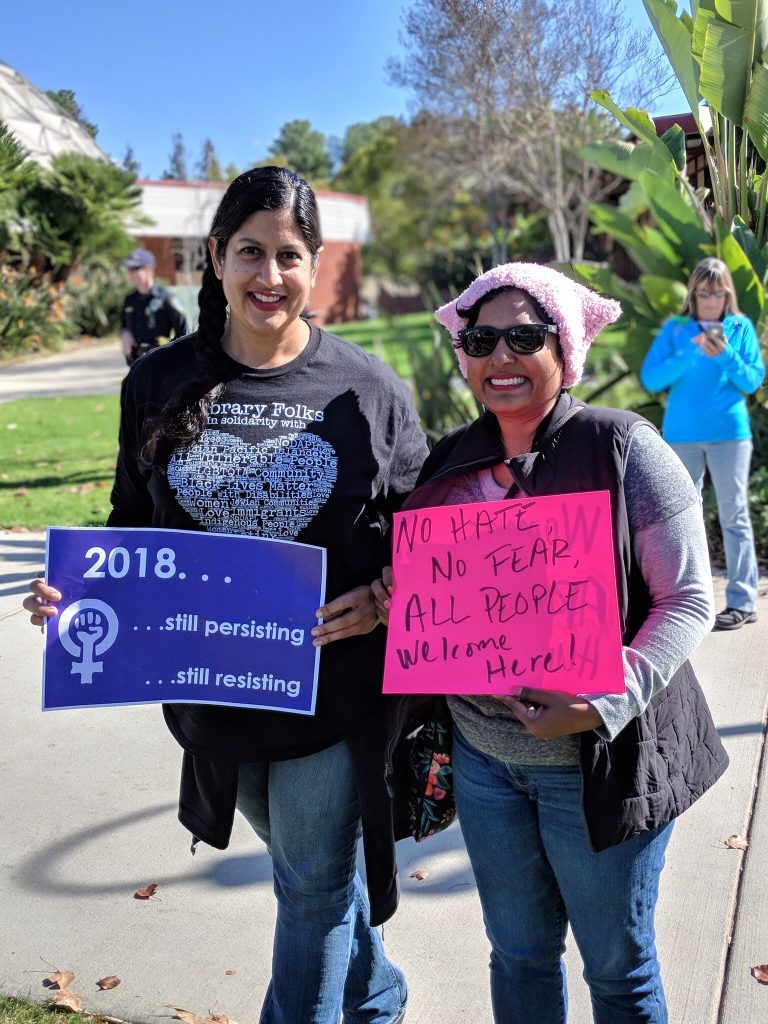
Gayatri made my college experience exponentially better through her support, creativity, and activism. I was a part of the group students who worked with faculty and grad students do launch the, “Tell Us How UC it” intervention following the racist chalkings on campus in 2015. We hung string and students could come and write thoughts/experiences around race and racism on campus. After three days, the instillation was dismantled. It was disheartening for all of us involved. Over the summer, I and others received and email from Gayatri asking if the library could take on the work, starting a living archive of student life and experiences around discrimination. When I saw that email, it brought me to tears. Her support took this piece who’s impact had been blunted and brought it into the institution itself. It was amazing.
The next year was filled with activism with my and my roommate at the time. Every protest we hosted, Gayatri was there marching with us, supporting us, giving us space to craft and practice.
As a part of a class on exhibition and access, Gayatri supported our entire class and even helped arrange space for us to displace our exhibits in Geisel. She shared space with us to print and craft large objects at no cost and made our productions so much better.
She supported us all so much. Her presence made me and my peers better scholars and people.
~Joel Goldsmith
I had the pleasure of working with Gayatri on various committees, more specifically, International Education Week’s Flag Parade and Celebration. She was jovial, fun, kind, and one of my favorite people on campus. The last time I saw her, I gave her a big hug. I’ve been watching her these past 10 years from the sidelines, rooting for her as she tackled and brought visibility to one cause after another. I will miss Gayatri. I will miss the occasional run-in with Gayatri right where library walk meets the entrance to Geisel, where I would get to get my hug, wish each other well, talk about how we should get lunch, soon, and go about our day.
I keep reading that during a UC San Diego celebration of Toni Morrison’s literary legacy she posted the quote, ‘And she was loved.’ Yes, ‘she was loved.’ I will miss you, Gayatri.
Gwendolyne Guzmán Rose
